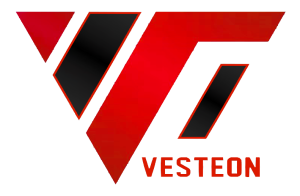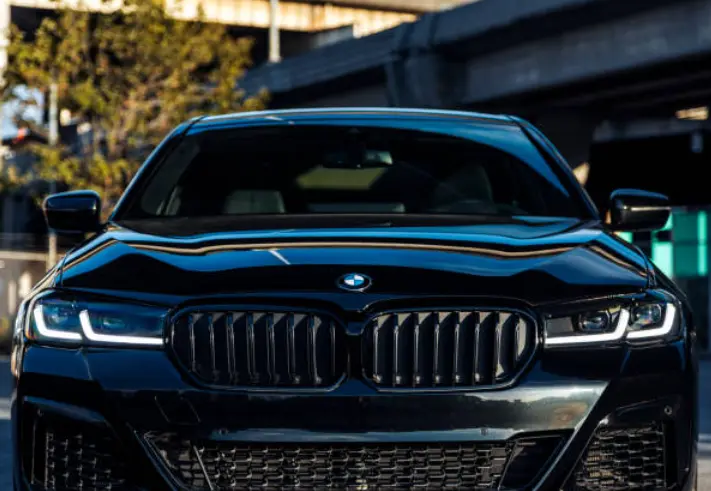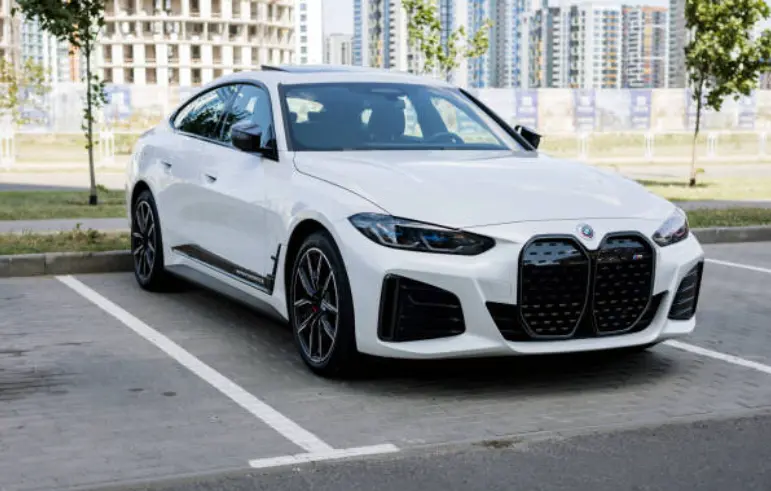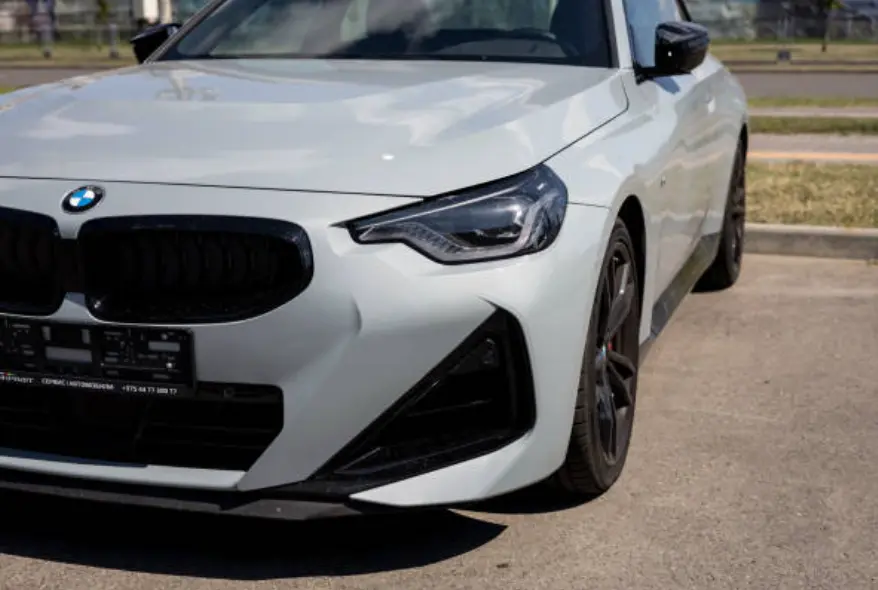The BMW brand is well known for crafting notch and premium vehicles that offer an array of wheel options to enhance the driving pleasure of their car buyers. We will explore the specifics regarding BMW wheels such as the types offered you they are manufactured, the key factors to keep in mind regarding their excellence, and details concerning their compatibility, with BMW cars.
Decoding BMW’s Rim Language: Types and Terminology
Knowing the styles of BMW wheel rims and the vocabulary linked with them plays a vital role in making well-informed choices when enhancing or changing your vehicle’s wheels.
Cast Rims
Cast wheels are widely used in BMW and various other car models as the type of wheel design available in the market today. The production method entails pouring liquid aluminum into a mold where it cools and hardens before being shaped and perforated to form the final wheel product. This approach proves to be budget-friendly and facilitates large-scale manufacturing processes that contribute to making wheels a popular choice due to their affordability. Despite their use and cost advantages compared to alternatives, like forged wheels, cast wheels are typically heavier and less durable. During the casting process, flaws may occur resulting in areas of weakness on the rim that could lead to cracks and distortions.
Flow Form Rims
Flow-form wheels also referred to as flow-forged or rotary forged wheels, serve as a middle ground between cast and forged options in terms of quality and cost-effectiveness. These wheels strike a balance between affordability and performance by incorporating features from both casting and forging methods. The production procedure begins with a cast wheel of width rather than the final desired size. The wheel undergoes spinning on a machine as steel rollers exert force on the rim section to stretch and compress the barrel. This method reduces the weight of the barrel to create a wheel that is both lighter and more robust than a cast wheel.
Forged Rims
Forged wheels symbolize the best in wheel technology that comes after the original manufacturing process of a vehicle’s wheels has been completed and when they are not needed anymore for the specific vehicle they were designed for. These wheels are made from aluminum alloys like 6061-T6 and are well known for being tough and lightweight at the same time. Creating forged rims involves heating a block of aluminum to extreme temperatures and then molding it into shape using high pressure with a hydraulic press machine. This unique process gets rid of any gaps within the metal structure and makes sure that all the grains in the metal are aligned properly. The result? A wheel that stands out for being tougher and lighter than wheels made through casting methods.
Hybrid Forged Wheels
Hybrid forged wheels represent a twist on rotary forged wheels by integrating casting and forging techniques to produce durable wheels with precise contours and improved resilience. The method kicks off by forming the metal into a shape via low-pressure casting before undergoing the rotary forging process to enhance its structure and durability. This blended technique strikes a balance between the advantages of casting and the performance perks of forging.
Understanding Wheel Fitment for BMWs
Ensuring that your wheels are fitted correctly plays a role in maintaining good handling and safety while also preventing problems like rubbing against the fender or interfering with suspension parts on BMW vehicles or any other cars, for that matter, when choosing aftermarket wheels.
Key Fitment Parameters
- Bolt Pattern (PCD): This refers to the number of lug holes and the diameter of the circle they form. BMWs typically use a 5×120 bolt pattern.
- Centerbore: This is the diameter of the hole in the center of the wheel that fits over the vehicle’s hub. It’s important to match the center bore of the new rim to the hub to prevent vibrations and ensure a secure fit.
- Width and Diameter: These measurements, expressed in inches, refer to the width of the rim and the overall diameter of the wheel, including the tire. Selecting the correct width and diameter ensures compatibility with the vehicle’s suspension and braking system.
- Offset: Offset determines the wheel’s position relative to the hub and affects how far in or out the wheel sits from the fender. The correct offset ensures proper clearance with suspension components and prevents rubbing against the fender.
BMW Wheel Fitment Chart
| BMW Model (Development Code) | Front Wheel Size | Front Offset | Rear Wheel Size | Rear Offset | Notes |
| 1 Series (F20) | 16×6.5 | 33 | – | – | – |
| 16×7 | 40 | – | – | – | |
| 17×7 | 40 | – | – | – | |
| 17×7.5 | 43 | 17×8 | 53 | – | |
| 18×7.5 | 45 | 18×8 | 52 | – | |
| 19×7.5 | 45 | 19×8 | 52 | – | |
| 19×8.5 | 47 | 19×8.5 | 47 | Alpina | |
| 1 Series (F21) | 16×6.5 | 33 | – | – | – |
| 16×7 | 40 | – | – | – | |
| 17×7 | 40 | – | – | – | |
| 17×7.5 | 43 | 17×8 | 53 | – | |
| 18×7.5 | 45 | 18×8 | 52 | – | |
| 19×7.5 | 45 | 19×8 | 52 | – | |
| 19×8.5 | 47 | 19×8.5 | 47 | Alpina | |
| 2 Series (F45) | 16×7 | 52 | – | – | – |
| 17×7.5 | 54 | – | – | – | |
| 18×8 | 57 | – | – | – | |
| 19×8 | 57 | – | – | – | |
| 2 Series (F46) | 16×7 | 52 | – | – | – |
| 17×7.5 | 54 | – | – | – | |
| 18×8 | 57 | – | – | – | |
| 19×8 | 57 | – | – | – | |
| 3 Series (E30) | 14×6.5 | 30 | – | – | – |
| 14×7 | 25 | – | – | – | |
| 15×7 | 20 | – | – | – | |
| 15×7 | 25 | – | – | – | |
| 15×7 | 26 | – | – | AC Schnitzer | |
| 16×7 | 28 | 16×8 | 28 | Alpina | |
| 16×7.5 | 25 | – | – | – | |
| 16×8 | 24 | – | – | Alpina, M3 only | |
| 17×7.5 | 25 | – | – | – | |
| 17×7.5 | 30 | – | – | – | |
| … | … | … | … | … | … |
Make sure to check your car’s manual or talk to a tire expert to check the exact fitting needs for your BMW vehicle.
Choosing the Right BMW Rims
Choosing the rims for your BMW requires taking into account aspects like your budget limit, how you plan to use them, the look you’re aiming for, and quality factors to weigh in.
Budget
The cost of BMW rims can differ significantly based on the style and brand variety available in the market. Cast rims are typically the budget choice compared to flow form wheels and forged wheels which tend to be pricier options you’ll come across during your search for that perfect fit for your vehicle’s aesthetic appeal and performance needs.
Intended Use
When you think about how you utilize your BMW car daily on smooth roads or highways and if you enjoy driving at high speeds or often navigate through challenging terrains like off-road trails or race tracks for any performance driving activities that you engage in frequently, upgrading to forged rims, for enhanced strength and durability could be a valuable choice worth considering as an investment.
Style and Aesthetics
BMW wheels come in a variety of styles and finishes that can enhance the appearance of your car to match your preferences perfectly! When deciding on the design you desire for your wheels for a BMW vehicle, consider the range of choices available to get the look you desire best fits your car’s style and personality. Forged wheels are renowned for their ability to be customized with designs that bring an added element of individuality owing to the distinct manufacturing process they undergo in contrast to cast wheels available in different finishes like chrome or painted options as well as alternatives, like brushed or polished finishes that enable you to tailor the look of your BMW to match your personal style preferences.
Ensuring Quality and Safety
When buying BMW wheels or rims ensure that you prioritize quality and safety above all else. Make sure to choose rims, from known manufacturers that are dedicated to maintaining high standards of quality control. These reputable manufacturers focus on research and development using top-notch materials and manufacturing techniques while subjecting their products to testing to ensure they comply with industry regulations and standards.
Identifying Genuine BMW Rims
Genuine BMW wheels usually have markings, such as official logos or identifiers, that help differentiate them from fake or counterfeit ones.
- BMW stamp on the back of the wheel
- “M” badge below the front center cap
- Three-digit manufacturer’s code near the valve stem
Be cautious of cheap imitations, as they may not adhere to the same quality and safety standards as genuine BMW rims, potentially compromising your vehicle’s performance and safety.
Vesteon: A Leader in OEM Wheel Manufacturing
Shandong Vesteon Automotive Parts (Group) Co., Ltd., a company in the industry field since 2005, focuses on creating and marketing various types of wheels such as alloy, steel, cast, and forged wheels for different car brands. Vesteon prides itself on its production capacity of 3 million wheels and its modern production facilities that feature cutting-edge machinery from Germany and Taiwan.
Vesteon’s OEM Services for BMW
Vesteon provides OEM (Original Equipment Manufacturer) services which allows them to create wheels tailored to the requirements of vehicle manufacturers like BMW. This guarantees that the wheels are compatible with and meet BMW’s quality criteria. Vesteon’s OEM services offer BMW owners a choice, for acquiring replacement rims that mirror the original wheels installed in the factory.
Vesteon’s Competitive Advantages
Vesteon sets itself apart from its rivals by leveraging key strengths;
- DDP (Delivered Duty Paid) delivery: Vesteon handles all shipping and import duties, simplifying the purchase process for customers.
- OEM manufacturing capabilities: Vesteon’s ability to produce wheels to OEM specifications ensures compatibility and quality.
- Flexibility to mix steel and alloy wheels: Vesteon accommodates orders that combine steel and alloy wheels, offering customers greater flexibility.
At Vesteon company too, we value our customers greatly. Have a specialized team to assist with any questions and guarantee customer happiness.
Conclusion
BMW wheels play a role in enhancing the driving experience by adding style and performance benefits to the vehicle ride quality and aesthetics factor to car enthusiasts’ enjoyment behind the wheel of their BMW vehicles.



